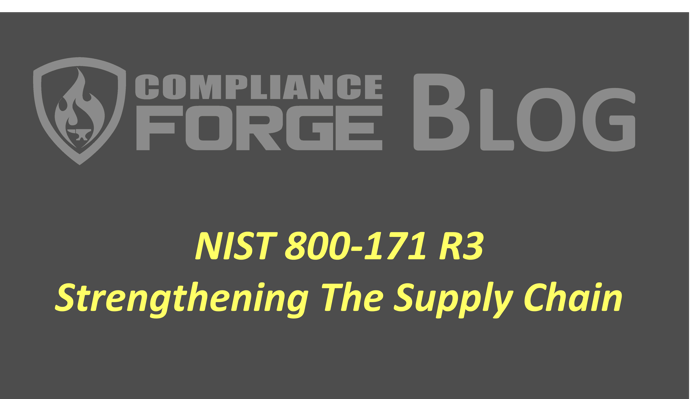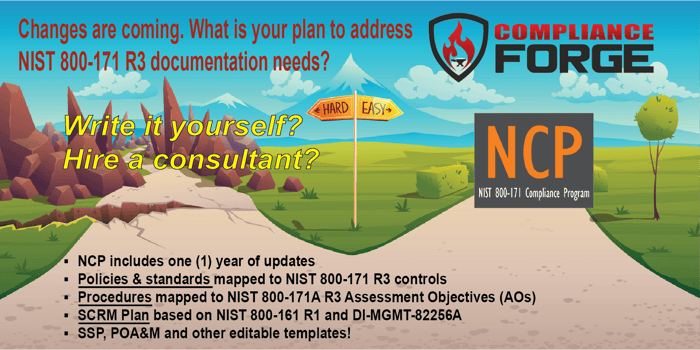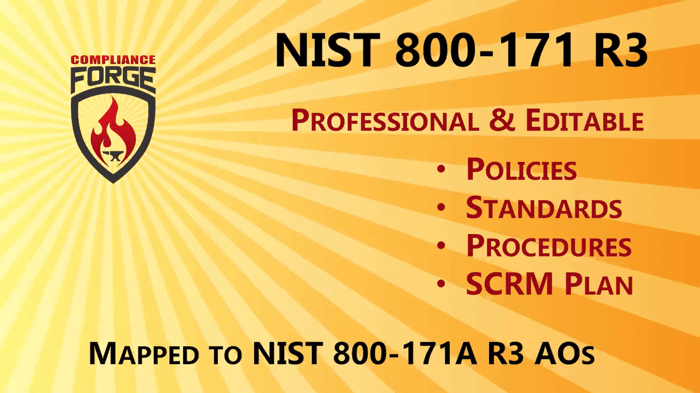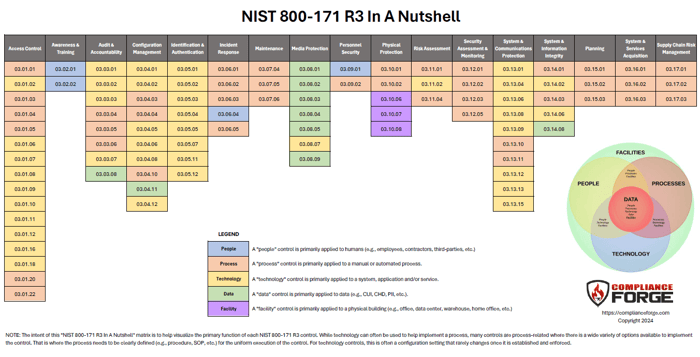
NIST 800-171 R3 - Strengthening The Supply Chain
The protection of sensitive/regulated is not confined to an organization's internal systems alone. For those striving to achieve NIST 800-171 compliance, recognizing the crucial role of Supply Chain Risk Management (SCRM) is paramount. This article explores why a robust SCRM Plan is indispensable for organizations aiming to meet the stringent requirements of NIST 800-171.
David Driggers, Partner at How To GRC (HTGRC), knows the intimate details of Cybersecurity Supply Chain Risk Management (C-SCRM) and specializes in helping organization build cybersecurity and data privacy programs that are capable of withstanding external scrutiny. He states, “Your responsibilities for protecting data and critical business processes no longer end with your infrastructure. As dependency and interconnectivity of supply chains becomes more standard, transparency and visibility into the cybersecurity posture of your critical suppliers is no longer just a ‘nice to have’ capability.”
National Institute of Standards and Technology (NIST) publishes NIST 800-171 which is a set of guidelines designed to enhance the cybersecurity posture of organizations handling Controlled Unclassified Information (CUI). For the Final Public Draft (FPD) of NIST 800-171 R3, there is a new domain that covers C-SCRM, including the need to have a “SCRM Plan” as part of an organization’s cybersecurity program.
The significance of SCRM in NIST 800-171 compliance:
- SCRM Plan: Organizations will be required to develop and maintain a SCRM Plan in order to comply with NIST 800-171 R3. This requires a documented, holistic approach to how third-party risk management is identified, assessed and remediated on an ongoing basis.
- Extended Network of Risk: Organizations often rely on a network of suppliers, vendors, and partners to fulfill various operational needs. However, this extended network introduces a myriad of potential vulnerabilities. A robust SCRM Plan allows organizations to identify, assess, and mitigate risks associated with their supply chain, ensuring a comprehensive security strategy.
- Protection of Controlled Unclassified Information (CUI): NIST 800-171 places a significant emphasis on safeguarding CUI. As CUI may be shared across the supply chain, organizations must implement measures to secure this information at every touchpoint. SCRM ensures that all entities within the supply chain adhere to the same rigorous security standards.
- Regulatory Compliance: Many organizations are obligated by contractual agreements to comply with NIST 800-171. A well-defined SCRM Plan not only demonstrates a commitment to meeting these compliance requirements but also serves as a proactive approach to mitigating potential risks within the supply chain.
- Continuous Monitoring and Assessment: SCRM is not a one-time activity but an ongoing process. A comprehensive SCRM Plan includes continuous monitoring and assessment of the supply chain, allowing organizations to adapt to evolving threats and vulnerabilities. This dynamic approach aligns with the NIST 800-171 requirement for continuous improvement in cybersecurity practices.
- Incident Response Preparedness: In the event of a security incident within the supply chain, a well-prepared SCRM Plan equips organizations with the tools and processes needed for an effective and coordinated response. This minimizes the impact of incidents and ensures a swift resolution, reducing potential disruptions to operations.
Best Practices for Implementing SCRM in NIST 800-171 Compliance:
- Vendor Assessment and Due Diligence: Conduct thorough assessments of vendors and partners, evaluating their cybersecurity practices and ensuring alignment with NIST 800-171 requirements.
- Contractual Obligations: Clearly define cybersecurity requirements in contracts with suppliers and partners, establishing a shared commitment to compliance and security standards.
- Information Sharing and Collaboration: Foster open communication and collaboration with entities in the supply chain, creating a unified front against potential cybersecurity threats.
- Continuous Training and Awareness: Provide ongoing training to employees and partners involved in the supply chain, raising awareness about cybersecurity best practices and the importance of compliance.
As organizations navigate the complex terrain of NIST 800-171 compliance, integrating a robust SCRM Plan is not just a best practice but a necessity. Recognizing and addressing risks within the supply chain is integral to safeguarding sensitive/regulated data, meeting regulatory requirements, and fortifying the overall cybersecurity posture of organizations in their mission to protect CUI.
If you have questions on SCRM-related compliance, please feel free to contact us. We would be more than happy to discuss the various options we offer to help you comply with this requirement.



